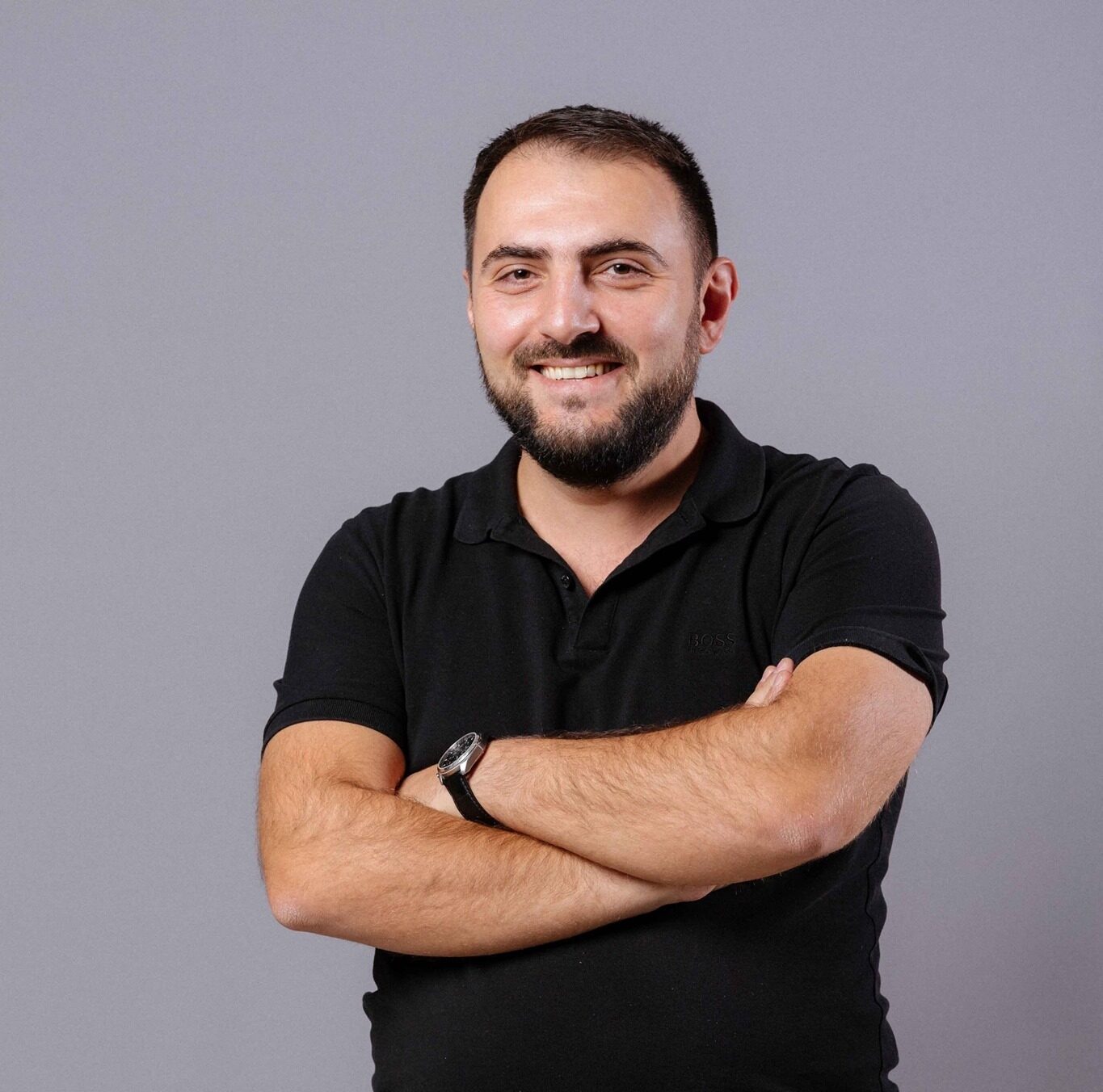From Lycos to DataArt Armenia: Aleksandr Burnazyan on his journey in IT

Our protagonist, Aleksandr Burnazyan from Armenia, spoke in detail about his first job in IT. In this article, he shares his story, talks about early rejections, the importance of fundamental knowledge, and gives advice to those who are just beginning their careers in IT.
Aleksandr Burnazyan, Yerevan city, Senior Solutions Architect at DataArt, Facebook
About me
I work at DataArt as a Solutions Architect.
In 2002, I enrolled in the Faculty of Applied Mathematics and Informatics at Yerevan State University. At that time, the field of Computer Science, as we know it today, did not yet exist, and this program was the closest to it.
My path in IT began early — at the age of around eighteen. At that time, the IT sector in Armenia was already developing, but on a much smaller scale: today, there are hundreds of IT companies in Yerevan, whereas back then there were only a few dozen. I was not actively looking for a job, but I was already interested in the opportunities.
First job in IT
In 2003, I saw an announcement at the university about free training courses from Lycos — one of the largest search engines before the rise of Google. Lycos had an office in Yerevan with a team of about two hundred employees. In terms of development and expertise, it was considered one of the strongest companies on the market. Lycos was the first in Armenia to launch a free student training program with a subsequent internship offer.
At first, I did not pay attention to the announcement, but then a friend suggested we apply — there were no classes at the time anyway. We submitted our applications, passed the interviews, and I was invited to join the training. Lycos was using the Java programming language at the time, which I had already begun learning on my own. That helped during the interview: I spoke about a project I had done. It turned out that the interview was conducted by the head of the team working on the Lycos chat — the company’s most well-known product in Europe.
I was accepted into the program in 2003, began an internship in 2004, and by 2005 I had signed my first employment contract as a junior developer. I formally did not change jobs until 2018. Lycos shut down in 2009, but I stayed in its affiliated structures, which simply changed names and forms — essentially, it was the same system.
Currently, I work at DataArt. My story with the company began in 2019. At that time, there were many opportunities on the market, and that was when DataArt opened its office in Armenia — I became the thirty-ninth employee. Today, more than five hundred people work in the Yerevan offices.
Before that, I had spent about fifteen years working at product companies, and I became interested in trying outsourcing. This format gave me the opportunity to work on various projects and technologies — it became an important step in my development.
Challenges
I did not have much experience with job interviews and rarely encountered rejections.
After Lycos, I joined an American company that was just opening an office in Yerevan. They required passing an algorithmic test on HackerRank. Despite my academic background, I did not score enough points — my first attempt was unsuccessful. That was my first serious rejection. At that time, algorithms were not yet a mandatory part of interviews, as they are now.
The company offered me a second chance. I took two weeks, actively practiced solving tasks on HackerRank, refreshed my knowledge of Computer Science theory, and successfully passed the selection process on the second attempt. That was how I got a job at my second company — it was in 2019.
My education definitely helped during the job search. It was academic and provided me with a solid foundation. At university, we did not study things that are directly applied in practice, but knowledge of mathematics, algorithms, and logic greatly helps in quickly understanding new technologies.
In addition to hard skills, soft skills are also important. Diligence, responsibility, the ability to work in a team, and to resolve conflicts — all of these become especially crucial as you move up the career ladder. The higher the position, the more communication is required — with colleagues, clients, and management — and the more important strong communication skills become.
At the moment, the market is oversaturated, there have been many layoffs, and companies are often not expanding. There are fewer vacancies for entry-level specialists — most are looking for middle and senior-level professionals. This is a global trend. However, I believe that focusing only on experienced specialists is not the most forward-looking strategy. Junior professionals with motivation and a fresh perspective can bring great value to a company. Those who understand this gain a long-term advantage.
Three tips to help young professionals find a job in IT
It is important to focus on fundamental knowledge. The basic principles of Computer Science remain relevant — they help you better understand any technology and learn it more quickly.
At present, it is especially important to keep up with the development of artificial intelligence and related fields. I would recommend studying not only artificial intelligence itself, but also the tools that help you work more productively. I believe that soon the ability to use such tools effectively will become an essential skill. The ability to quickly achieve high-quality results is a significant advantage.
And one more thing — take initiative. You need to actively seek opportunities, understand what you are interested in, and not be afraid to try something new.
